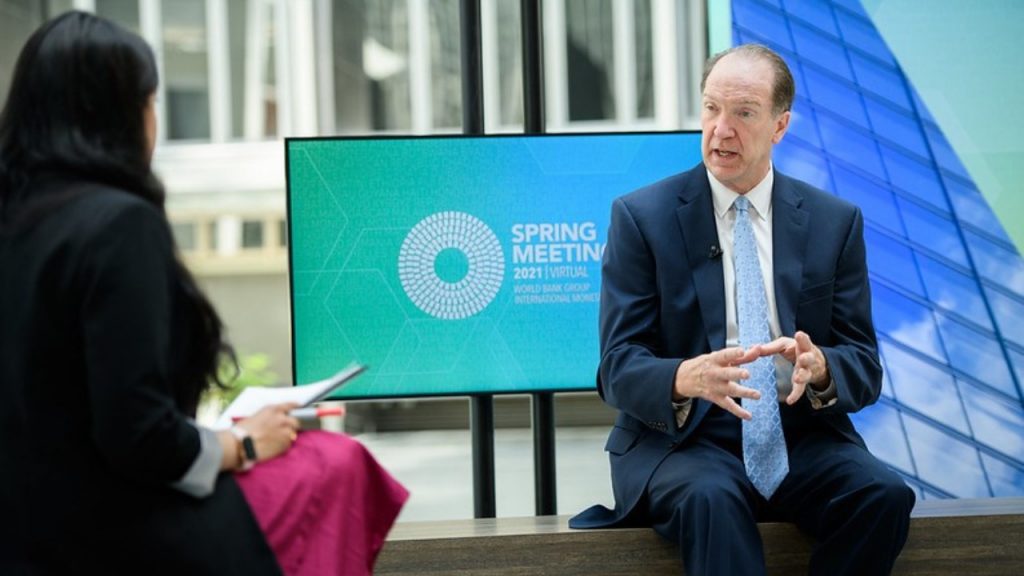The World Bank is providing 250 million doses of COVID-19 vaccine with Bank financing, Group President David Malpass announced.
Malpass provided the figure on Wednesday, at the 2021 Annual Meetings Opening Press Conference. This year’s event will run from October 11 to 17.
The meetings will discuss a range of development issues including the economic outlook, growth, vaccines, debt, climate, trade, among others.
Read Also: Subsidies Encourage Overuse Of Fuels – World Bank President
Malpass noted that the world is suffering from a dramatically uneven recovery while Inequality is worsening across countries.
‘The outlook remains grim for most of the developing world. There’s high inflation, there’s too few jobs, there’s shortages that extend to food, water, and electricity’, he observed.
Malpass due to the pandemic, factory and port have shut down, logistics and supply chains bottlenecks are worsening too amid sharp increases in the backlog of orders.
‘Our estimates suggest that 8.5% of global container shipping is stalled in or around ports. That’s twice as much as in January of 2020. These disruptions are placing sharp price increases on shipping fees, and the final costs of goods.’
The World Bank chief lamented that the COVID-19 outbreak already pushed nearly 100 million people into extreme poverty.
Malpass said it is important that the situation is addressed by redirecting policies in both the advanced economies and developing countries so that growth and investment are more widespread.
Affirming his institution’s determination to secure access to vaccines, Malpass said he chairs the Multilateral Leaders Taskforce which includes Kristalina – Georgieva, IMF Managing Director, Tedros Ghebreyesus – WHO Director-General, and Ngozi Okonjo-Iweala – WTO Director General.
Malpass disclosed that the team will soon hold its fifth meeting focused on matching the extensive pledges and trying to help actual vaccinations come out of the pledges made by advanced economies.
AFRICA TODAY NEWS, NEW YORK

